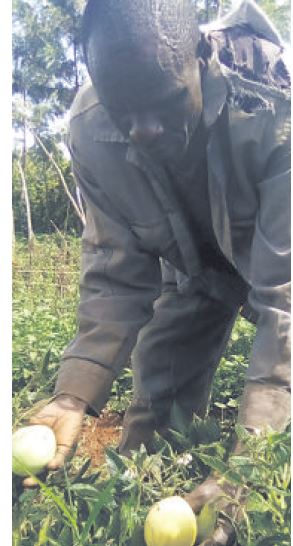×
The Standard e-Paper
Fearless, Trusted News

When you walk into the homestead of Joseph Kirimi, you cannot fail to notice the small plots that he has planted different kinds of horticulture crops.
There is already ripe tomatoes, capsicum, potatoes, kales, and cabbages. The tomatoes are ready for market.







